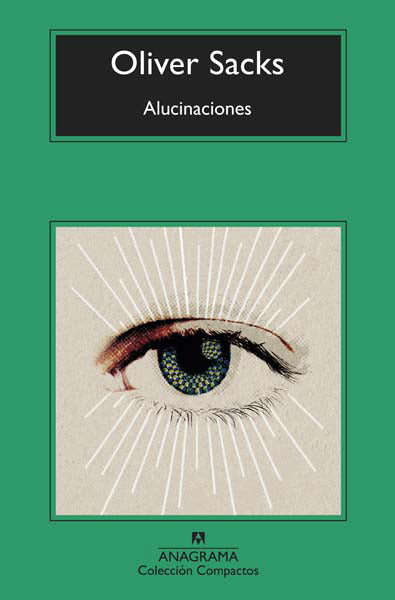
Description
xWe don’t see with our eyes, but with our mind; that’s why we often ‘see’ things that aren’t actually there, things that we file under the generic term ‘hallucinations’. Hallucinations don't have to be visual, as Oliver Sacks explains in his new and fascinating book: they can also be olfactory or auditory. / No vemos con los ojos, sino con el cerebro; de ahí que muchas veces veamos cosas que no están delante de nosotros, cosas que llamamos apariciones, fantasmas o visiones, conceptos que obedecen al término genérico de «alucinaciones». Pero las alucinaciones no son sólo visuales. Como nos explica Oliver Sacks, las alucinaciones también pueden ser olfativas o auditivas. Cuántas veces hemos «oído» que alguien nos llamaba y al volvernos no había nadie; o hemos experimentado un olor cuya presencia es físicamente imposible; o hemos creído que alguien nos seguía; o hemos «visto» algo que la razón nos dice que no pertenece a nuestro mundo. Asociadas en la mentalidad popular con la locura, las alucinaciones obedecen muchas veces a un simple problema neurológico con nombre y apellido, y tienen más que ver con la privación sensorial, la ebriedad, la enfermedad o algún tipo de lesión. Quienes padecen migrañas pueden ver arcos de luz o figuras liliputienses. La gente que pierde la vista puede compensar su carencia con un rico mundo visual alucinatorio, e incluso el simple hecho de dormirnos o despertarnos puede causar que el mundo onírico y el real se fusionen en una imaginería imposible. Gran parte de nuestra fantasía popular y nuestro folklore se basa en las alucinaciones, sin las cuales no podemos comprender figuras como los ángeles, las brujas y los alienígenas, ni tampoco algunas obras de autores tan conocidos como Dostoievski, Evelyn Waugh, August Strindberg o Amy Tan, víctimas todos ellos de alucinaciones en algún momento de su vida.
Additional Information
xPages: 352
Imprint: Anagrama
Format: Paperback
Collection: Compactos
BISAC Code: PSY000000
- Choosing a selection results in a full page refresh.


